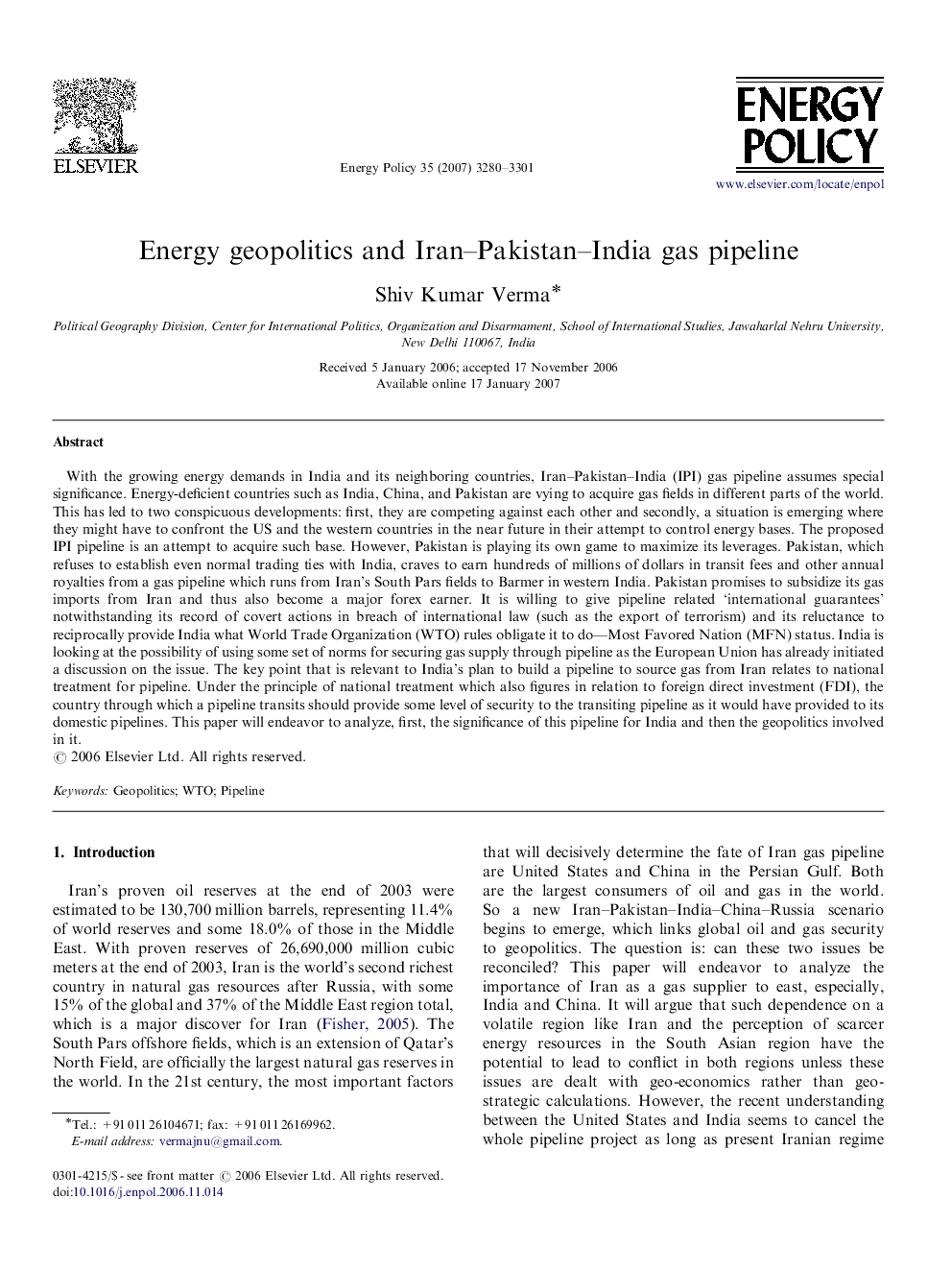| کد مقاله | کد نشریه | سال انتشار | مقاله انگلیسی | نسخه تمام متن |
|---|---|---|---|---|
| 994437 | 936088 | 2007 | 22 صفحه PDF | دانلود رایگان |

With the growing energy demands in India and its neighboring countries, Iran–Pakistan–India (IPI) gas pipeline assumes special significance. Energy-deficient countries such as India, China, and Pakistan are vying to acquire gas fields in different parts of the world. This has led to two conspicuous developments: first, they are competing against each other and secondly, a situation is emerging where they might have to confront the US and the western countries in the near future in their attempt to control energy bases. The proposed IPI pipeline is an attempt to acquire such base. However, Pakistan is playing its own game to maximize its leverages. Pakistan, which refuses to establish even normal trading ties with India, craves to earn hundreds of millions of dollars in transit fees and other annual royalties from a gas pipeline which runs from Iran's South Pars fields to Barmer in western India. Pakistan promises to subsidize its gas imports from Iran and thus also become a major forex earner. It is willing to give pipeline related ‘international guarantees’ notwithstanding its record of covert actions in breach of international law (such as the export of terrorism) and its reluctance to reciprocally provide India what World Trade Organization (WTO) rules obligate it to do—Most Favored Nation (MFN) status. India is looking at the possibility of using some set of norms for securing gas supply through pipeline as the European Union has already initiated a discussion on the issue. The key point that is relevant to India's plan to build a pipeline to source gas from Iran relates to national treatment for pipeline. Under the principle of national treatment which also figures in relation to foreign direct investment (FDI), the country through which a pipeline transits should provide some level of security to the transiting pipeline as it would have provided to its domestic pipelines. This paper will endeavor to analyze, first, the significance of this pipeline for India and then the geopolitics involved in it.
Journal: Energy Policy - Volume 35, Issue 6, June 2007, Pages 3280–3301